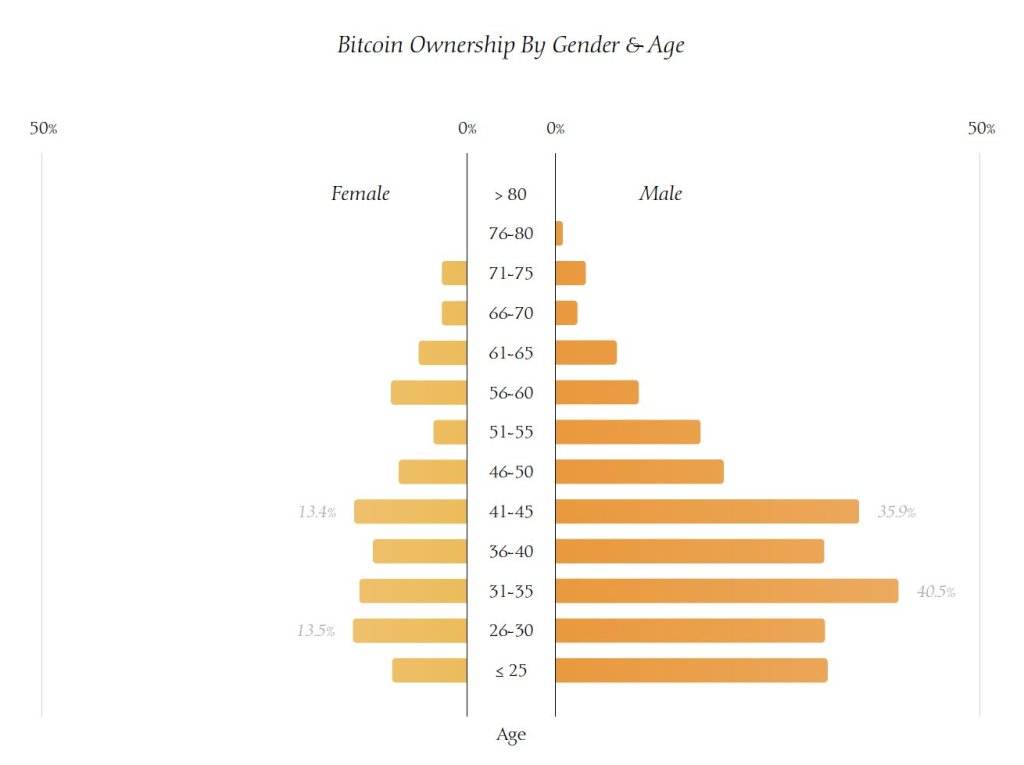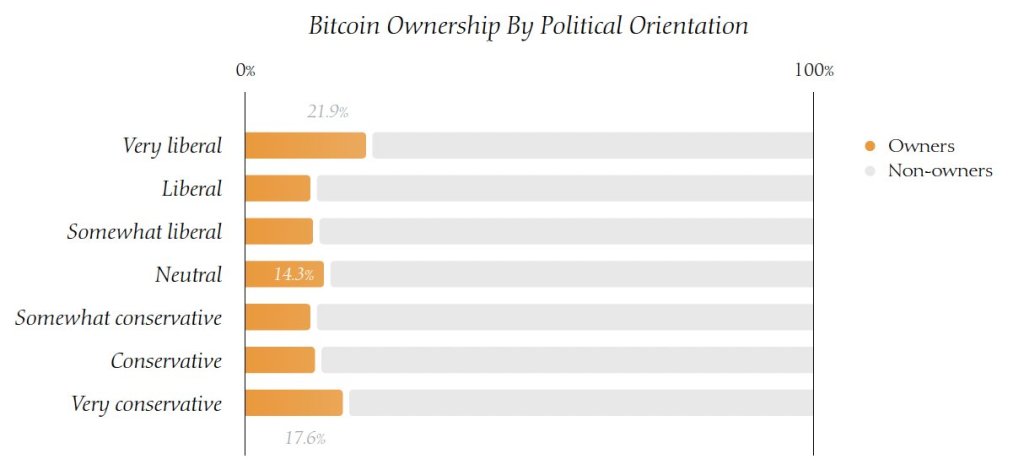A new study conducted by the Nakamoto Institute has unveiled surprising insights into the demographics of Bitcoin ownership in the United States, challenging several popular assumptions about the typical cryptocurrency investor. The research, spearheaded by Troy Cross and Andrew Perkins, analyzed responses from a survey of 3,538 American adults, aiming to penetrate deeper into the socio-political and moral fabric underlying financial decisions related to BTC.
Who Is The Average US Bitcoin Owner?
“We wanted to understand who owns Bitcoin and who doesn’t, and why. That called for research. Not just surface-level demographics, but a deep look into the roots of our psycho-social identities,” Troy noted via X.
Contrary to the common stereotype that BTC enthusiasts predominantly align with libertarian or right-leaning political views, the findings from this study reveal a much broader spectrum of political identities among owners. “We found no strong correlations across many dimensions—race, ethnicity, religion, relationship status, income, education, or financial literacy—with owning Bitcoin. Age and gender were the exception,” Cross noted on X.

Indeed, BTC owners in the US tend to be younger and predominantly male, with a significant representation across all political orientations, including those identifying as ‘very liberal’.
One of the most unexpected revelations of the study was the political diversity among owners. “What we found was definitely our most shocking result… Like most everyone on this app, our critics in the media, academics who write about Bitcoin, and almost all politicians, we thought Bitcoin ownership would skew towards the political right, and towards libertarianism. Wrong!” Cross stated.

The data indicates that owners mirror the broader American population, predominantly moderate with smaller conservative and liberal contingents. “Note that the above chart is not saying that more Bitcoiners are very liberal than any other political identity. They’re not. Most Bitcoiners are moderates. It’s saying that if you randomly pick someone very liberal and randomly pick someone who is moderate, the liberal will be more likely to own Bitcoin,” Troy clarified.
In terms of moral foundations, the study sought to determine whether certain ethical values correlated with BTC ownership. Both liberal and conservative moral values are represented among owners, showing no significant skew towards one or the other.
Perhaps the most defining characteristics of owners are their levels of knowledge and trust in the cryptocurrency. “What correlates most strongly with Bitcoin ownership is not who you are, so to speak, but how much you know about Bitcoin, and whether you think it is useful, trustworthy, and good,” Cross elucidated. These factors—trust, knowledge, utility, and perceived morality—were the strongest correlations found in the data, significantly distinguishing BTC owners from non-owners.

The study concludes that the typical BTC owner is not confined to any single political or demographic niche but is rather characterized by a higher degree of familiarity and positive perceptions of the utility and ethics. “The 14% of Americans who own Bitcoin […] are simply Americans who have taken the time to study the technology and formed positive attitudes about it,” Cross summed up.
At press time, BTC traded at $66,625.

Featured image created with DALL·E, chart from TradingView.com


